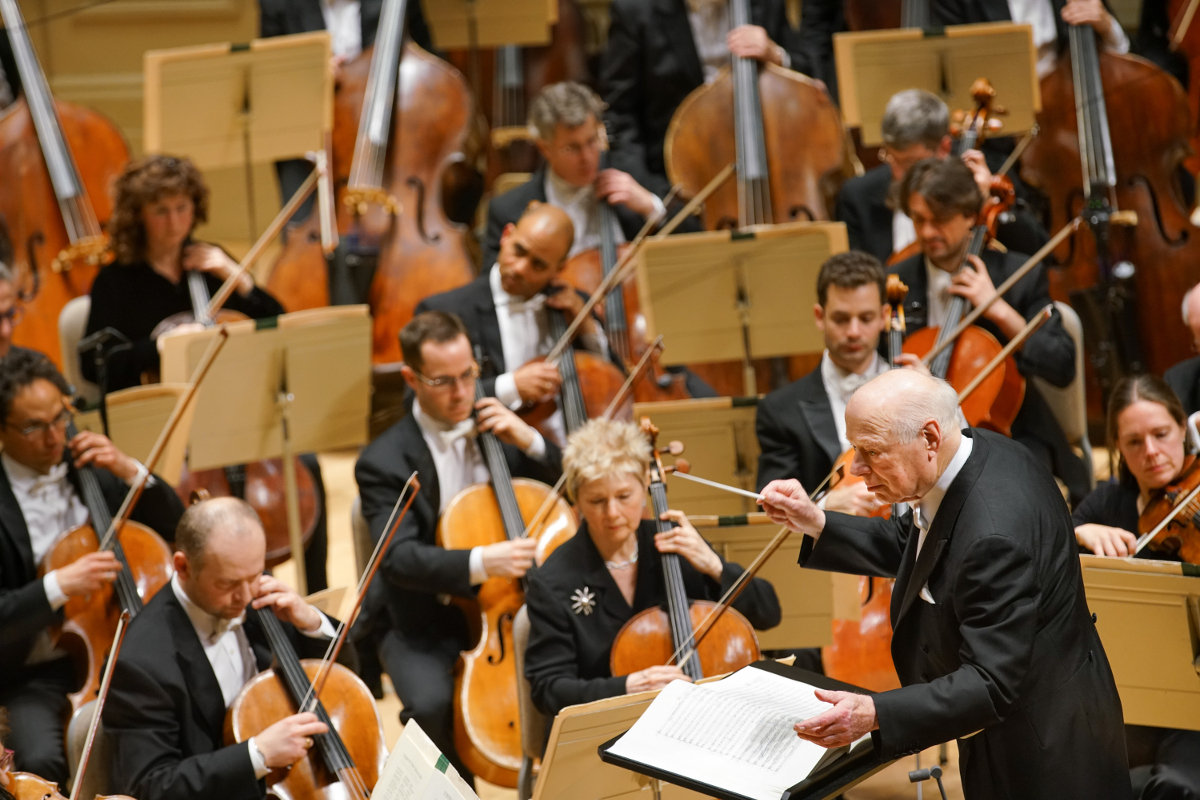BSO Performs Mahler’s Brilliant Debut, and Heart-Wrenching Goodbye

Photo by Michael Blanchard, Courtesy BSO
In the fifth lecture of a six-part series at Harvard in 1973, legendary conductor and Lawrence native Leonard Bernstein called the last page of Gustav Mahler’s Symphony No. 9, “the closest we have ever come, in any work of art, to experiencing the very act of dying—of giving it all up.” Though Mahler began work on an unfinished Tenth before his own death in 1911, Bernstein believed the revolutionary composer had nothing left to say; he had already bid farewell to the world in the Ninth.
In the 20 years between the 1889 debut of his First Symphony in Budapest, a reviled flop, and the completion of his Ninth in the fall of 1909, Mahler had endured more than his share of misfortune, at times reflected in his symphonies. He had lost both his parents and sister in 1889. The successful Berlin premiere of his Second in December 1895 was overshadowed by the suicide of his younger brother, Otto. In order to take on a directorship in an increasingly anti-Semitic Vienna, Mahler, a Jew, was forced to convert to Roman Catholicism.
His daughter, Maria, died of diptheria and scarlet fever in the summer of 1907, right around the time he learned of his fatal heart condition. Two years later, he learned that his wife, Alma, was having an affair with architect Walter Gropius, founder of the Bauhaus School. Mahler died in a Vienna sanitarium in 1911, never having heard his Ninth Symphony, into which he wove his own arrhythmic heartbeat, performed.
The Boston Symphony Orchestra is offering a unique opportunity to hear the two pieces bookending Mahler’s symphonic oeuvre, with one remaining performance of the First Symphony on April 5, and three performances of the Ninth on April 14-16 and 19th.
Bernard Haitink, celebrating his 45th anniversary with the BSO, led a masterful performance of Mahler’s First, sometimes called “Titan,” Thursday night at Symphony Hall. From the bewitching sustained-A inviting the listener into a realm of possibility (with a nod to Beethoven’s Ninth), to the rustic Viennese waltz in the second movement, the piece is a fabulous introduction to a genius who stood astride two centuries, challenging nearly every convention he encountered. The macabre third movement pairs a downright sinister, minor arrangement of “Frère Jacques,” a children’s song (which deeply upset concertgoers at the time), with intermittent swaths of what we’d call klezmer music today. Comfort arrives in a G-major tune, but it is fleeting. There is no escape from death.
Mahler described the fourth and final movement as the “cry of a wounded heart.” It builds raucously to an exuberant climax, but, as Steven Ledbetter, longtime program annotator for the BSO wrote, “this ‘triumph’ has been dishonestly won; it is completely unmotivated, in harmonic terms, too jarring, too unsatisfactory.” But Haitink guided the orchestra back to the mountaintop with aplomb and, for an authentic flourish, had the horns stand and play their “chorale over everything” for a euphoric conclusion, just as Mahler had intended.
Musical director Andris Nelsons will conduct Mahler’s Ninth, which received its American premiere at the BSO in October 1931, under Serge Koussevitzky. It has been described both as a menagerie of the dualities that comprised Mahler’s splintered psyche—his Western roots and his fascination with Eastern spirituality, for example—as well as a harbinger of the age of world wars.
The finale is not an exploration of death, nor resurrection, as beautifully rendered in final movement of Mahler’s Second. It desperately clings to life, but it is no use. “It is terrifying, and paralyzing, as the strands of sound disintegrate. We hold onto them, hovering between hope and submission, and one by one, these spidery strands connecting us to life melt away, vanish from our fingers even as we hold them,” Bernstein said at Harvard.
“We are half in love with easeful death. Now more than ever seems it rich to die, to cease upon the midnight with no pain. And in ceasing, we lose it all, and in Mahler’s ceasing, we have gained everything.


